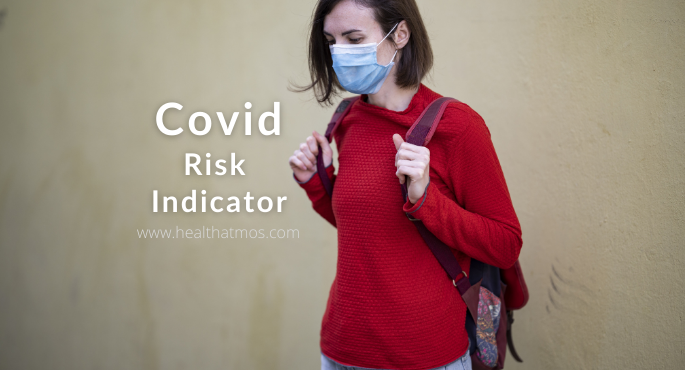What Is Corona Virus?
Covid-19 is a type of virus that has caused a worldwide pandemic of respiratory illness. Corona Risk Indicator will help you to understand who is more prone to Covid-19.
- Covid-19 is a disease which emerged in China in December 2019.
- Covid-19 spreads from person to person and is diagnosed with a laboratory test.
- The Preventive measure is to get vaccinated and frequent hand-washing, practicing social distancing, wearing a face covering, staying home when you are sick and coughing into the bend of your elbow.
What are the Symptoms of Covid-19?
The most common symptoms include:
- Cough
- Very high Fever
- Difficulty breath
- Muscle aches
- Sore throat
- Unexplained loss of taste or smell
- Diarrhea
- Headache
Family Health Screening
Couple Health Screening
Children Health Screening
Senior Citizen Health Screening
Health Atmos provides quick & quality Executive Health Checkup, Annual Health Screening Package and Preventive Health Checkup that are affordable & cost-effective.
However, the severity of symptoms can vary widely from person to person.
How long does it take to develop symptoms after you have been exposed to Covid-19?
Symptoms could appear as soon as two days after exposure or as long as 14 days later, according to the Centers for Disease Control and Prevention (CDC). A study led by researchers at the Johns Hopkins Bloomberg School of Public Health shows that the median time for symptoms to show up is about five days. That is why the CDC uses the 14-day quarantine period for people with likely exposure to the new corona virus.
Is it possible to have Covid-19 symptoms without the fever?
It is possible to be infected with Covid-19 and have no fever, especially in the first few days. Some people who have been infected by Covid-19 don’t display any symptoms—they’re asymptomatic. Therefore, we need to keep in mind that it is also possible to have Covid-19 with minimal or even no symptoms at all.
How is the Covid-19 test performed?
The doctor will put on protective clothes, mask and then collect samples. This involves swabbing the inside of the person’s nose with a skinny swab that is long enough to reach the nasopharynx, the upper part of the throat, behind the nose. This is a mildly uncomfortable process and it takes just a few seconds.
Who are easily affected by Covid-19?
Apart from the age-related risk factors, Covid-19 severity could be very high in people with:
- Cardiovascular disease
- High blood pressure
- Type 2 diabetes
- History of smoking
- Chronic lung disease
- Chronic kidney disease
- Working in a health care environment and providing direct care to patients.
The overall infection risk depends on not just your genes, but also on your medical history and the preventive measures taken. Some people who can be easily affected by Covid-19 include people over the age of 85 and people with heart disease, lung disease or diabetes.
Older Adults and Covid-19:
- Older adults are prone to have long-term health problems which can put them at risk.
- People’s immune system weakens with age, making it difficult for older people to fight the infections.
- Lung tissue becomes less elastic over time, making respiratory diseases like Covid-19 a concern for older people.
- Inflammation in older people will be more intense, causing organ damage.
Covid-19 and Heart Disease:
Although Covid-19 most often affects the airway and lungs, these organs work together with the heart to drive oxygen to the body’s tissues. When the lungs are overtaxed due to illness, the heart has to work harder, which creates challenges for people who are already living with heart disease.
Lung Disease and Covid-19:
Chronic airway and lung diseases such as chronic obstructive pulmonary disease (or COPD, such as emphysema), asthma, pulmonary fibrosis and interstitial lung disease can set the stage for more severe infection with the new coronavirus because of scarring, inflammation or lung damage.
Diabetes as a Risk Factor for Covid-19:
People living with diabetes have an increased risk of getting very sick from the new coronavirus. Diabetes type 1 and type 2 both cause an increase in blood sugar. Poorly controlled blood sugar can make viral diseases, including COVID-19, more dangerous, possibly because higher blood sugar can create an environment where viruses are likely to thrive.
In addition, diabetes increases inflammation and weakens the immune system, making it harder for people living with the condition to fight off disease in general. Those living with diabetes should adhere to their medication regimens and do everything possible to keep their blood sugar under control. Having an adequate supply of medications and staying in close touch with the doctor can add to peace of mind.
How to protect yourself from the risk of Covid-19?
Whether or not they are in a high-risk category, everyone needs to take steps to protect themselves and others from catching or spreading COVID-19. Severe illness is occurring in people who have no known risk factors, including young adults and even children. One can always take steps to reduce the risk of infection.
- Avoid large events and mass gatherings.
- Avoid close contact (within 6 feet, or about 2 meters) with others. Avoid anyone who is sick.
- Stay home as much as possible and keep a distance between yourself and others if Covid-19 is spreading in your community, especially if you have a higher risk of serious illness.
- You should wash your hands often with soap and water for at least 20 seconds, or use an alcohol-based hand sanitiser that contains at least 60% alcohol.
- You should cover your face with a face mask in public places, such as the grocery store, where it’s difficult to avoid close contact with others.
- You should cover your mouth and nose with the bend of your elbow or tissue while coughing or sneezing. Throw away the used tissue and wash your hands right away.
- You must avoid touching your eyes, nose and mouth.
- You should avoid sharing dishes, glasses, towels, bedding and other household items if you are sick.
- You should clean and disinfect frequently touched surfaces such as doorknobs, light switches and electronics.
- You should stay home from work, school and public areas if you’re sick and avoid taking public transportation.
In addition to these everyday precautions, if you are at higher risk of developing Covid-19 symptoms, you should:
- Make sure you have at least a 14-day supply of your regular prescription and over-the-counter medications.
- Make sure that you have taken the influenza and pneumonia vaccine. These vaccines won’t prevent Covid-19, but becoming ill with influenza or pneumonia may worsen your outcome if you are infected with Covid-19.
- Establish an alternate way of communicating with your doctor if you have to stay at home for a few weeks. Some doctors are doing appointments via phone or video conference.
- Arrange for delivery orders of restaurant meals, groceries or medications so you don’t have to leave your home.
Does your Blood Type Increase the Risk for Covid-19?
A recent study from China concluded that people with type “A” blood may have a higher risk of contracting the new coronavirus than people with type “O” do. But this finding does not mean that people with the “O” blood group are immune. As more studies need to be done to verify the results.
What happens if I am infected with Covid-19?
If you are infected with Covid-19, you need to take several steps to keep the SARS-CoV-2 virus from spreading to others in your home and community:
- Stay home, unless it’s to get medical care. Ask others to take care of needs such as grocery shopping.
- Stay in touch with your doctor and monitor your symptoms. If your symptoms get worse, call your doctor.
- If you have trouble breathing or other severe symptoms you should seek medical care immediately.
- Distance yourself from others in your home and use a separate bathroom if possible.
- Cover coughs and sneezes with a tissue or with your elbow. Wash your hands thoroughly with soap and water, and often.
- Areas and surfaces in your home should be cleaned and disinfected often. The areas where you are isolated should be disinfected every day.
- Before visiting your doctor, call ahead so they can protect others who may not have the virus and they will give you a separate area to wait.
You can book your Covid-19 test by contacting Health Atmos. We cover all states in India and 25+ countries globally. You can choose a home collection service or walk-in appointment at a lab near you. We will be happy to be at your service. Stay Healthy! Stay Safe!


